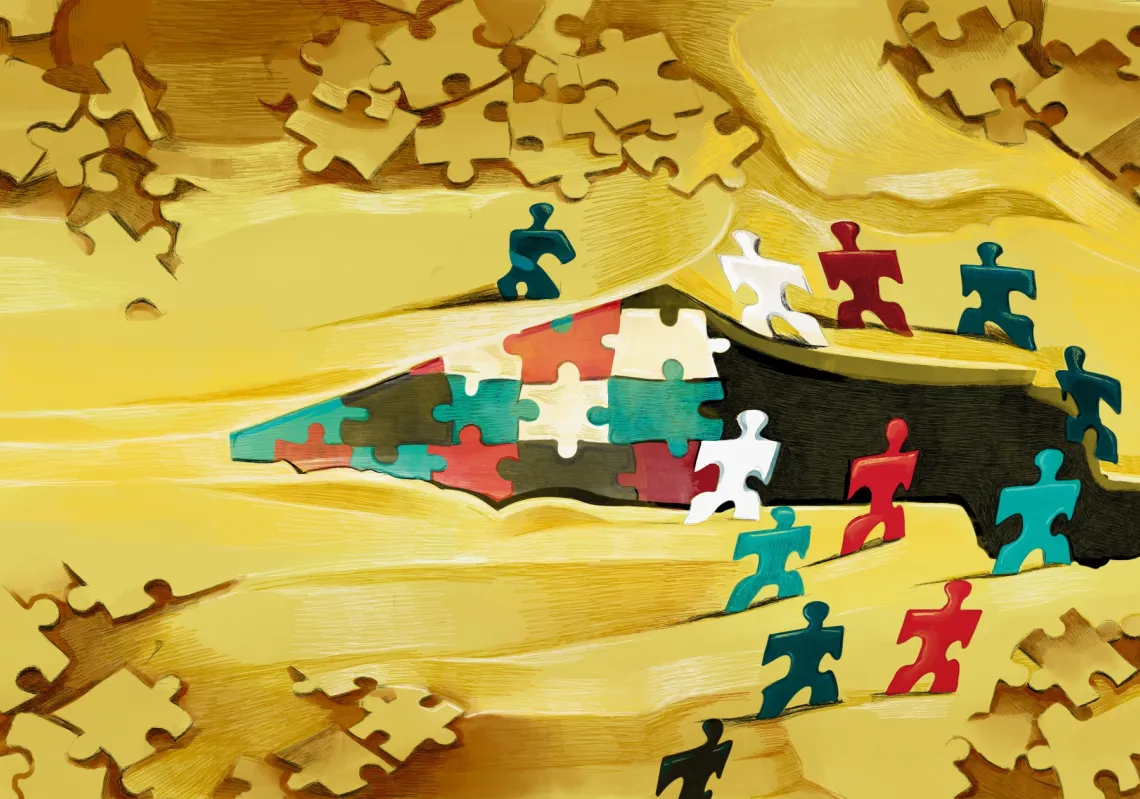Al-Qaeda leader Osama Bin Laden was killed on 2 May 2011 in a special US operation in Pakistan during US President Barack Obama's tenure. He was succeeded by his Egyptian deputy Ayman al-Zawahiri, who was killed in Afghanistan four years later in July 2015.
Since October 2023, Egyptian terrorist Mohamed Salah al-Din al-Halim Zaidan, better known by his alias, Saif al-Adel, has been the group's leader. Born and raised in Egypt, he studied commerce at Cairo University and enlisted in al-Qaeda in 1989, joining Bin Laden first in Sudan and then in Somalia and Afghanistan.
Those who know him describe al-Adel as hesitant, intellectually weak, and lacking any charisma. At 63, he doesn’t appeal to a new generation of jihadists who are mainly in their twenties, taking into account that since 2001, the terror organisation has failed to achieve a mass appeal as it used to, suffering from a major shortage of funds while being outflanked and outmuscled by new groups like Hay'at Tahrir al-Sham and the Islamic State (IS).
IS was technically born out of al-Qaeda, and the two groups held almost identical jihadist programmes and ideologies until they split and took up arms against one another back in 2014. Both suffer from crippling setbacks today and from lacklustre leaders who do not enjoy the same stature in the jihadist community as Bin Laden and IS leader Abu Bakr al-Baghdadi, who was killed by the Americans in 2019.
Springboard
Al-Qaeda considers itself the springboard from which all jihadist groups emerged. It views IS as nothing but an offshoot group that went astray and would never have emerged in the first place had it not been for the financial and military support that it received from Abu Musab al-Zarqawi in Iraq after the US occupation of 2023. While al-Qaeda now relies on financial donations from its adherents after its purse strings went dry in 2011, IS resorts to unconventional ways to make money, like kidnap for ransom money, oil theft, and trafficking in both arms and human beings.
For all intents and purposes, al-Adel has become a démodé relic of the past, unable to cope with changing times. Unlike IS, it doesn’t strive to control territory like the latter did when overrunning the cities of Raqqa, Deir ez-Zor, Mosul, and Tikrit. It considers this unsustainable, counter-productive, and too costly in terms of arms and manpower and prefers saving its arms for real battles. He is no longer interested in reestablishing an Islamic state which taxes its subjects in return for public services like education, security and media.
While al-Qaeda emerged from the midst of a global conflict in Afghanistan during the late 1980s, IS was born out of the wars in Iraq and Syria and remained a local organisation despite all efforts by al-Baghdadi to expand internationally.

There is no such thing in al-Qaeda as “foreign fighters” because it refuses to differentiate between them on the grounds of nationality or ethnicity, whereas, in IS, the division lines are crystal clear and foreign fighters are always given a backseat in favour of Iraqi and other Arab jihadists.
And finally, al-Qaeda cannot compete with IS when it comes to the former’s claims to the Islamic Caliphate, which requires the caliph to be a Quraishi (from the clan of Mecca notables) and from Ahl al-Bayt (Family of the Prophet). Neither applies to al-Adel.
Modern-day limitations
Al-Adel understands al-Qaeda's modern-day limitations, topped with the fact that he is older than most of his followers— old enough actually to be their grandfather. Living in total seclusion, he is distant from them, both physically and emotionally, never meeting to bond and hear out their worries and complaints.
He is also intellectually weak in Islamic fiqh (jurisprudence), and the fact that he was a protégé of Bin Laden and al-Qaeda’s founding fathers means little for the new generation of jihadists. It’s a plus, no doubt, but not enough to give him street credibility. In short, he lacks Bin Laden’s money and al-Zawahiri’s intellect.
Among the issues facing al-Adel today is the fact that he is Egyptian—the second in a row to take command of al-Qaeda. In an organisation packed with jihadists from all over the Muslim world, this works against him and has created a mummer of discontent from Iraqis, Syrians, and Yemenis, who find themselves driven out from al-Qaeda’s top command, arguing that Egyptian representation is not proportional to the number of Egyptians in the organisation.
Al-Qaeda is led by a seven-man council that includes departments for political, military, media, and security affairs. We only know one name: Abu Ayman al-Masri, who, like al-Adel, is an Egyptian in charge of security affairs. Four of the others, at least, are Egyptian.
During his final years, al-Zawahiri ordered major de-centralisation in al-Qaeda, which was completely disorganised, resulting from a lack of money and his advancement of age, where he became more concerned with matters of jurisprudence and theology than actual day-to-day leadership.















